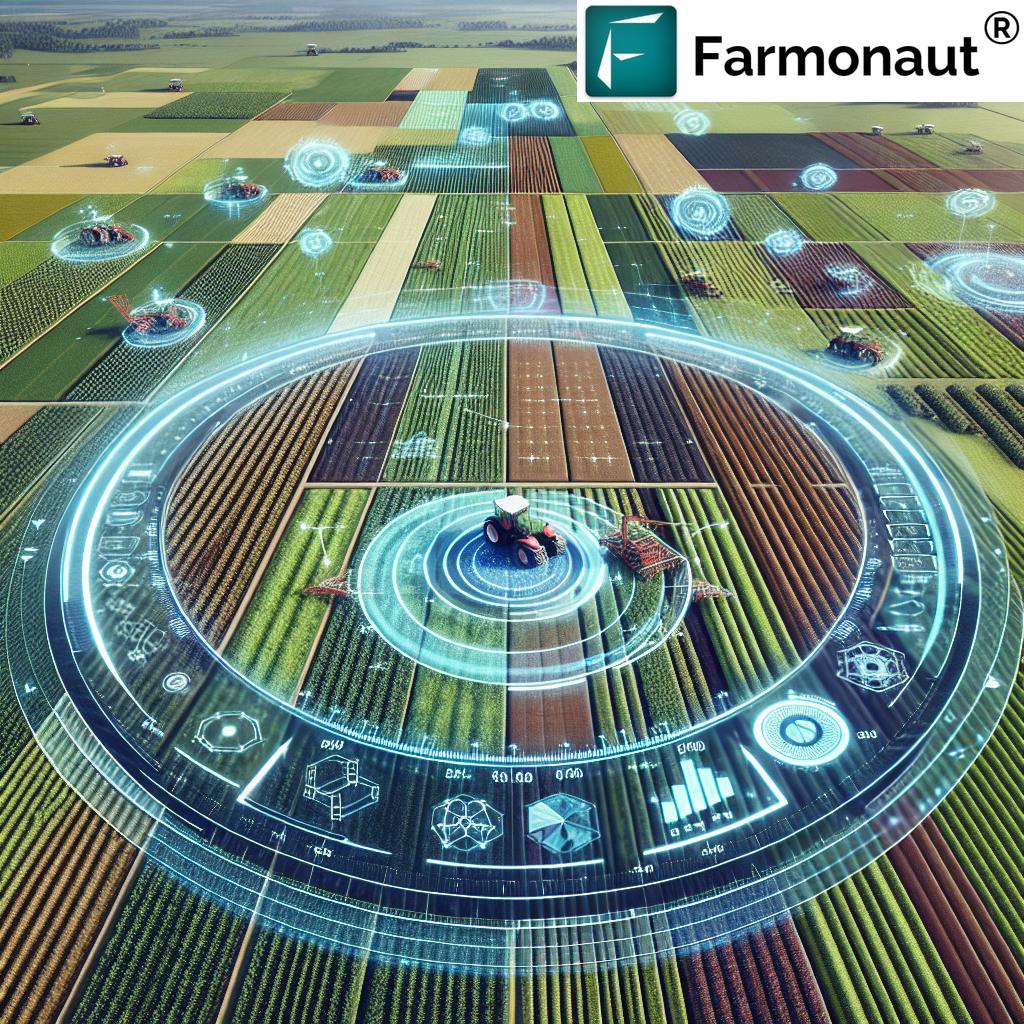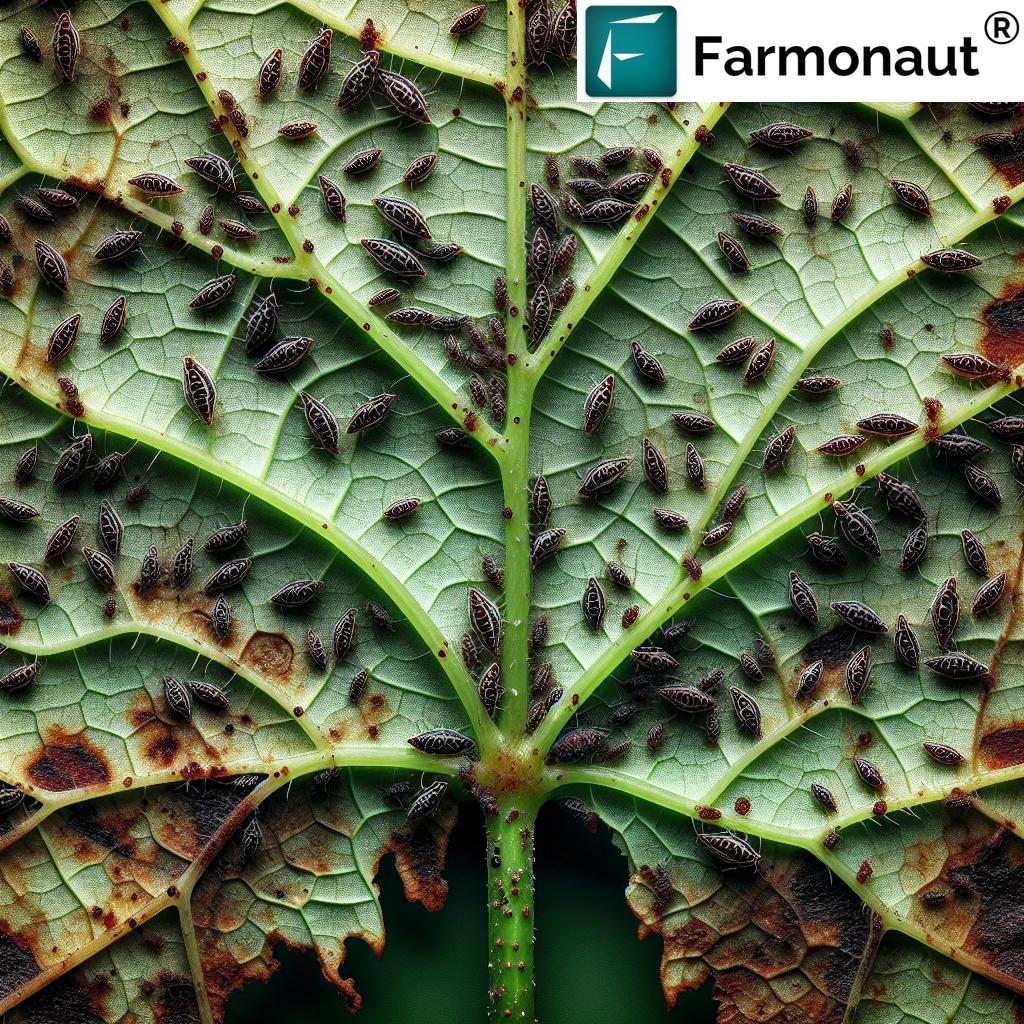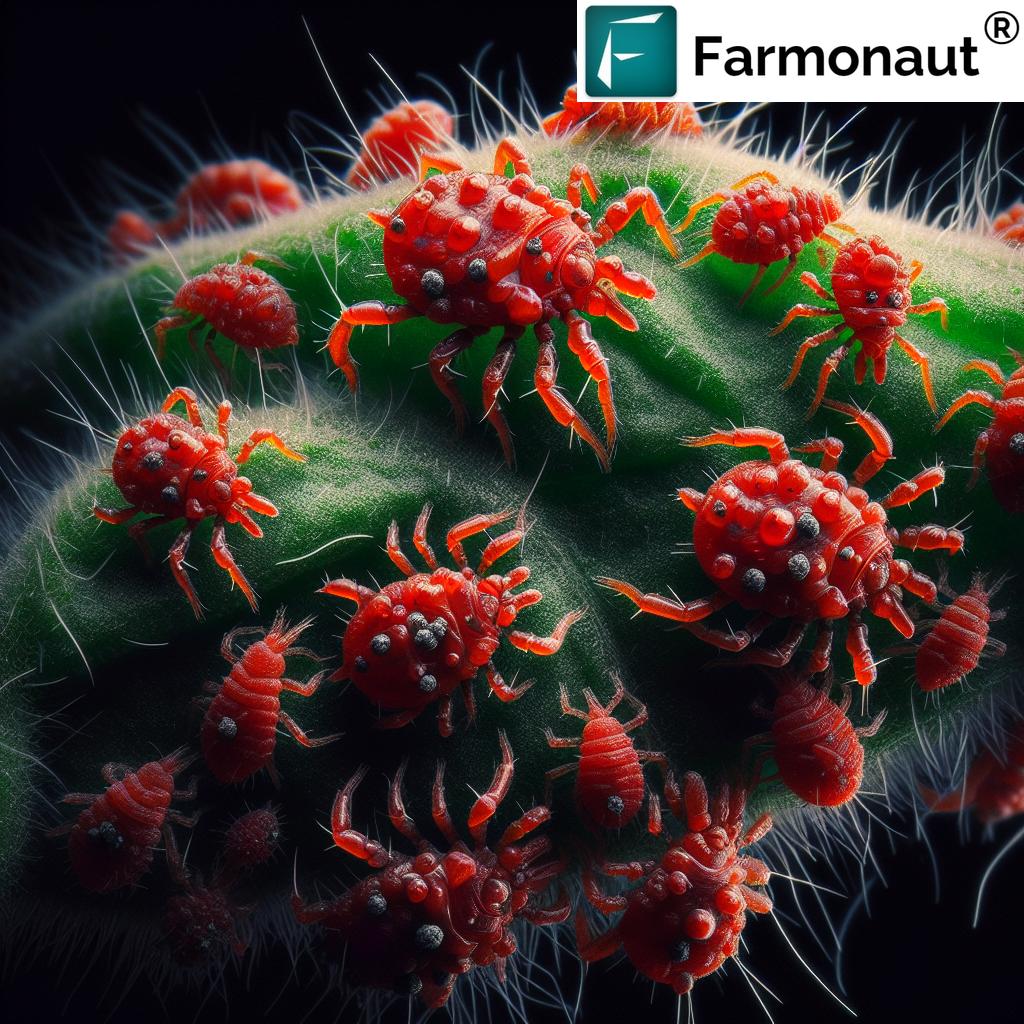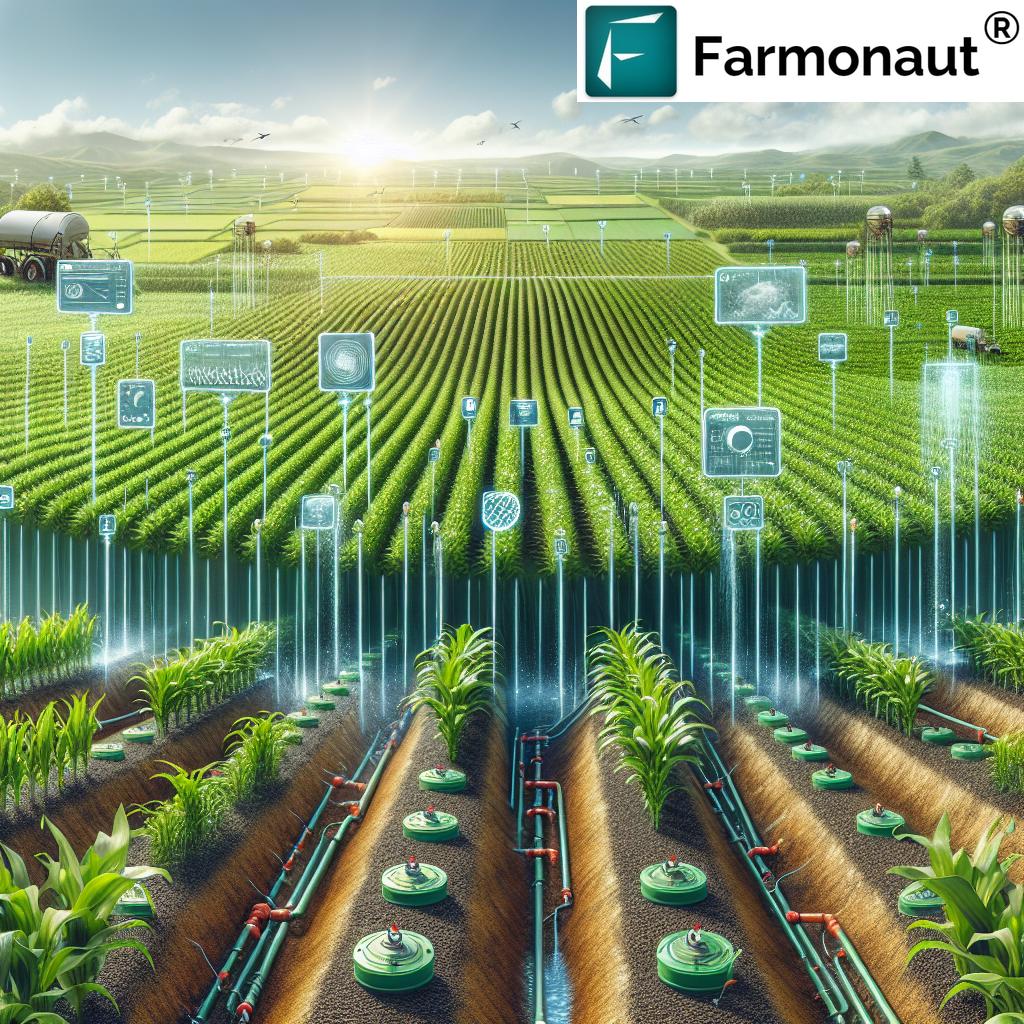Blockchain Certification & IoT: Top Agriculture Applications
“Over 20% of global agrifood companies adopted blockchain certification for supply chain transparency by 2023.”
Introduction
In 2025, digital innovation continues to revolutionize agriculture. While blockchain technology is often synonymous with cryptocurrencies, its practical, transformative uses in farming have become increasingly apparent, especially when integrated with the Internet of Things (IoT). This convergence fosters a new era of smart agriculture marked by unparalleled transparency, traceability, data integrity, and resource-optimized, sustainable practices.
Blockchain certification and blockchain verification, two pivotal blockchain agriculture applications, address enduring challenges: fraud prevention, supply chain transparency, food safety, regulatory compliance, and global trade agreements. Integrated with IoT devices—from soil sensors to satellite data—the decentralized ledger ensures verified, immutable records accessible throughout the agri-value chain, from farmers and distributors to retailers and consumers.
This comprehensive guide explores how blockchain & IoT power the future of agriculture, unlocking practical applications, overcoming challenges, and fostering efficient, sustainable, data-driven food systems for 2025 and beyond.
BEE True: A Smart, Scalable Honey Traceability Blockchain Solution
Why Blockchain & IoT Are Revolutionizing Agriculture
The agricultural sector is inherently complex, involving diverse stakeholders, fluctuating production conditions, and growing consumer demands for transparency and verified product standards. Traditional systems, reliant on paperwork and centralized databases, face issues like fraud, inefficiency, lack of real-time data, and susceptibility to errors or deliberate tampering.
Blockchain addresses these issues by providing a decentralized, tamper-proof ledger—each transaction, action, or certification is recorded, time-stamped, and accessible to authorized parties across the supply chain. When combined with IoT, which enables real-time data collection via sensors, drones, and even satellites, blockchain iot represents a powerful transformation in how agricultural data is authenticated, shared, and utilized for smart, precision farming.
- Transparency: Ensures all records, from seed origins to shipment, are visible throughout the supply chain, building trust among consumers, farmers, and retailers.
- Traceability: Every stage—from field to fork—is recorded and easily verifiable, enhancing food safety and reducing fraud.
- Data Integrity: Critical information such as certification details, organic product status, and environmental metrics remain immutable and accurate throughout their lifecycle.
- Optimized Resource Management: Accessible real-time data boosts efficiency, supporting precision irrigation, pest management, and sustainable practices.
- Automated Compliance & Trade Agreements: Smart contracts enable automatic verification of compliance, secure payment releases, and micro-insurance solutions, mitigating financial risks for farmers.
IoT devices in agriculture are projected to exceed 75 million worldwide by 2025, revolutionizing smart farming data collection.
Smart Farming Future: Precision Tech & AI Boosting Harvests, Enhancing Sustainability
Blockchain Certification & Verification in Agriculture
One of the primary blockchain agriculture applications is the digitalization and verification of agricultural certification. Traditionally, certifying organic produce, fair-trade products, and sustainable farming practices required extensive paperwork and manual verification, making the process both cumbersome and vulnerable to fraud.
How Blockchain Certification Works
- Cryptographic Methods: Blockchain certification creates digital certificates that cannot be altered, duplicated, or counterfeited.
- Immutable Records: Certifications are recorded on the decentralized ledger, accessible to all stakeholders (farmers, distributors, retailers, end consumers).
- Fraud Prevention: Reduces errors and eliminates the risk of counterfeit labels for organic and sustainable products.
- Direct Verification: Buyers can verify the authenticity and compliance of a product at any stage of its journey—without intermediaries.
For example: An organic coffee farmer’s certification is stored on the blockchain and linked to post-harvest and shipment data. At any point in the supply chain, buyers and regulatory bodies can check these records to confirm the coffee truly meets organic standards, building trust, preventing fraud, and supporting market value for committed producers.
Regenerative Coffee Boom 2025: Profits Soar in Kenya & Uganda with AI, Agro-forestry & Blockchain
Blockchain certification thus supports digital product verification, consumer trust, and the proliferation of sustainable practices worldwide.
Explore how blockchain-driven traceability solutions enhance food supply chain integrity with Farmonaut’s Product Traceability platform.
Farmonaut’s Traceability Solution for Honey: Blockchain-based Verification in Action
Applications of Blockchain & IoT in Precision Agriculture
Precision agriculture, driven by accurate, timely data, benefits enormously from blockchain iot integration. IoT devices—including field sensors, weather stations, and remote satellites—capture soil moisture, temperature, nutrient levels, and crop health directly from the environment. This data is immutably recorded on the blockchain.
This combined system guarantees data accuracy and transparency, meaning that records used for regulatory compliance, operational management, or even insurance claims are both verified and unalterable.
Key Precision Agriculture Applications (Blockchain IoT Focus)
- Automated Resource Optimization: Verified sensor data drives precision irrigation, targeted fertilization, and informed pest control, reducing waste and boosting yield.
- Real-time Monitoring: Blockchain records consolidate data from sensors deployed in fields, greenhouses, and livestock environments for enhanced decision-making.
- Regulatory Reporting: Governments and regulatory bodies can access and audit immutable data without physical field visits.
- Sustainability Tracking: Continuous monitoring supports carbon footprinting, water use analysis, and adoption of sustainable agricultural practices.
Discover real-time environmental and sustainability monitoring with Farmonaut’s Carbon Footprinting platform.
Farmonaut: Connect Your Farms with Satellites in Just 2 Minutes Using WhatsApp
Data Integrity in Action: Why Blockchain IoT Matters
- Immutable Data Storage: Each reading (soil, moisture, temperature, etc.) is time-stamped and permanently stored, eliminating data tampering.
- Verified Crop Health Monitoring: Crop condition records are accessible to stakeholders and can be submitted to regulatory authorities for compliance reporting without risk of unauthorized change.
-
Insurance & Loan Support: Verified IoT data, backed by blockchain, streamlines loan and micro-insurance approvals.
Learn how satellite-driven verification is powering fast crop loan and insurance access.
Advances in AI-based advisory systems further enhance farm management. Explore Farmonaut’s Crop Plantation & Forest Advisory tools, merging satellite data and AI-powered insights for more productive, resilient farming.
Introducing JEEVN AI: Personalized Smart Farming Advisory for 2025
Supply Chain Transparency & Traceability
Supply chain management in agriculture involves many stages—input sourcing, production, processing, transportation, distribution, and retailing. Each hand-off is a potential risk for errors, fraud, or loss of critical information.
Blockchain: The Backbone of Transparent Food Chains
Blockchain provides a single, shared source of truth for all stakeholders: every batch, shipment, or certification is recorded on-chain, with time-stamps and confirmed by responsible parties. If a food safety issue or quality concern arises, blockchain traceability enables instant identification of origin, minimizing losses and ensuring rapid, targeted recalls.
- Efficiency & Speed: Processes that demanded days for investigation (such as pinpointing contaminated batches) can be reduced to minutes.
- Consumer Trust: Shoppers can scan a QR code to verify a product’s journey, certifications, and even sustainability impact—fostering ethical purchasing.
- Compliance & Global Trade: Meeting international trade and regulatory standards is streamlined through publicly accessible, tamper-proof certification records.
- Fraud Prevention: Decentralized ledgers prevent double-selling, counterfeit labeling, and undocumented substitutions—protecting brands and consumers alike.
Learn how large-scale farm management is becoming more transparent, efficient, and fraud-resistant with Farmonaut’s Agro-Admin App.
Smart Farming Future: Blockchain, AI & IoT for Resilient Agriculture
Fleet and resource management is also greatly improved when blockchain verification is built into logistics and sensor-driven tracking. Discover optimized solutions with Farmonaut’s Fleet Management tools.
JEEVN AI: The Future of Smart Farming with Satellite & AI Insights
“IoT devices in agriculture are projected to exceed 75 million worldwide by 2025, revolutionizing smart farming data collection.”
Comparative Feature Table: Blockchain Certification & IoT Integration Benefits in Agriculture
| Application | Blockchain Role | IoT Role | Transparency Boost (%) | Traceability Improvement (%) | Estimated Productivity Gain (%) |
|---|---|---|---|---|---|
| Supply Chain Management | Immutable records, fraud prevention, compliance verification | Real-time logistics tracking, environmental monitoring | 85 | 90 | 15 |
| Crop Monitoring & Management | Authenticity of data, regulatory compliance support | Sensor-driven soil, moisture, temperature readings | 70 | 65 | 18 |
| Quality Certification (e.g., Organic, Fair Trade) | Tamper-proof digital certificates, audits | Automated data collection for compliance proof | 98 | 99 | 12 |
| Livestock Tracking & Health | Traceable animal health and movement logs | Wearable and environmental sensors | 78 | 82 | 10 |
| Fleet & Resource Management | Documented logistics, usage verification | Vehicle, equipment, and asset IoT tracking | 75 | 70 | 17 |
| Environmental Impact & Sustainability | Certified carbon footprint, compliance logs | Remote sensing for emissions and resource use | 91 | 91 | 8 |
These quantitative estimates reflect trends and outcomes noted in global agricultural deployments as of 2025—demonstrating the impact of blockchain certification, blockchain verification, and IoT integration across diverse, technology-powered farming applications.
Farmonaut: Empowering Agriculture with Satellite, Blockchain & IoT
At Farmonaut, we are dedicated to democratizing access to satellite-driven monitoring, blockchain traceability, and AI-powered advisory systems for agriculture in India and globally.
- Advanced, Satellite-based Solutions: We use satellite imagery and IoT data for real-time crop health, soil condition, and resource management, making insights accessible for farmers, businesses, and governments.
- Blockchain-based Traceability: Our platform provides next-gen traceability solutions—ensuring transparent, authentic food supply chains.
- Fleet & Resource Optimization: Through fleet management and remote sensing, we help you reduce costs and ensure efficient resource allocation.
- Environmental Sustainability: We provide carbon footprinting tools, supporting compliance and enabling sustainable practices in agriculture.
- Accessible Platforms: Our apps are available on Android, iOS, and web, and can be integrated with your business systems via API (API Link, API Developer Docs).
Whether you’re a farmer seeking real-time crop insights, a business optimizing large-scale operations, or a regulatory agency improving compliance, our technologies are designed to meet your needs in 2025 and beyond.
Transform your agricultural journey—experience affordable, scalable, and cutting-edge technology built for a smarter, more transparent food system.
Challenges & Future Outlook for Blockchain IoT in Agriculture
Despite their remarkable potential, blockchain and IoT adoption in agriculture are not without challenges.
- Infrastructure Barriers: Many rural regions lack reliable internet access and technical support, making IoT deployment and real-time blockchain integration more difficult.
- Cost & Accessibility: Affordability of sensor devices, satellite access, and blockchain resources are key challenges to widespread implementation.
- Digital Literacy: Training farmers and supply chain partners to understand, trust, and use blockchain certification platforms is a medium-term priority.
- Interoperability & Data Standardization: Harmonizing disparate IoT devices and software with blockchain systems remains a technical hurdle for agricultural developers.
- Scalability & Regulation: As usage expands, blockchain solutions must scale cost-effectively while ensuring compliance with evolving international trade and regulatory agreements.
What’s Next? (2025 & Beyond)
The future of blockchain and IoT in agriculture is bright and rapidly evolving:
- Smarter Smart Contracts: Self-executing digital agreements will automatically enforce trade compliance, trigger payments upon verified delivery, and activate micro-insurance policies based on verified IoT data.
- Machine Vision & AI: Automated field and crop analysis through satellite and drone imagery—integrated with blockchain for transparent reporting and compliance.
- Financial Inclusion: Secure, blockchain-driven digital IDs and verified crop data will enable broader access to finance and insurance for marginalized farming communities worldwide.
- Environmental & Social Sustainability: As climate and sustainability standards become central, blockchain certification will be essential for verifying sustainable practices and environmental impact.
- Global Adoption: As digital infrastructure expands, even smallholders in developing markets will benefit from transparent, efficient, traceable food systems.
Blockchain Certification & IoT in Agriculture: FAQs
What is blockchain certification in agriculture?
Blockchain certification refers to the process of recording farm product certifications (such as organic, fair trade, or sustainability confirmations) immutably on a decentralized ledger. This enhances authenticity and allows all parties to easily verify standards without the risk of paperwork errors or label counterfeiting.
How do IoT devices integrate with blockchain for farming?
IoT devices (e.g., soil moisture, temperature, or crop sensors) capture field data, which is then recorded on blockchain platforms to provide immutable, timestamped records. This ensures that all environmental and operational data supporting certification, compliance, and management is accurate and unaltered.
What agricultural processes benefit most from blockchain & IoT?
Supply chain management, quality certification, precision crop management, resource optimization, and food safety all see significant improvement. The technology is especially vital for high-value crops, perishable foods, and sustainably certified products.
Are these technologies affordable for smallholders?
As digital infrastructure expands and service providers like Farmonaut lower cost barriers through cloud, satellite, and subscription models, more smallholders can access blockchain iot innovation in agriculture at scale.
What are the biggest challenges to blockchain & IoT adoption?
Key challenges include digital literacy gaps, upfront device costs, technical interoperability issues, and varying infrastructure across rural/remote areas. Addressing these will be essential for universal smart farming adoption in 2025 and beyond.
Conclusion
The integration of blockchain certification and IoT continues to revolutionize farming. From reducing fraud and ensuring food safety to enabling precision resource management and building unprecedented trust in global supply chains, these applications provide a practical, transformative system for the agricultural landscape of 2025.
By delivering verified, immutable records, empowering farmers with actionable data, and making certification and compliance accessible, blockchain iot integration fosters a new era of transparency, efficiency, and sustainability.
At Farmonaut, we believe in making these advanced technologies affordable and accessible for everyone—supporting a smarter, more resilient, and equitable food system for all.













